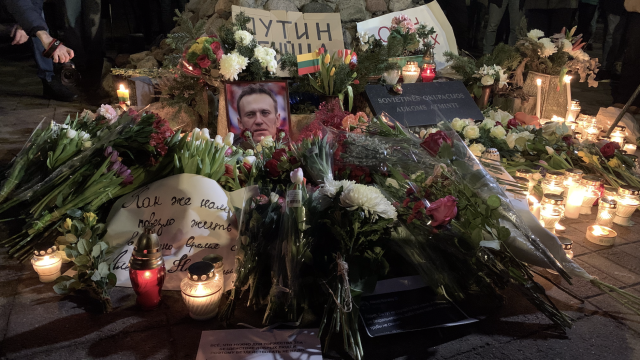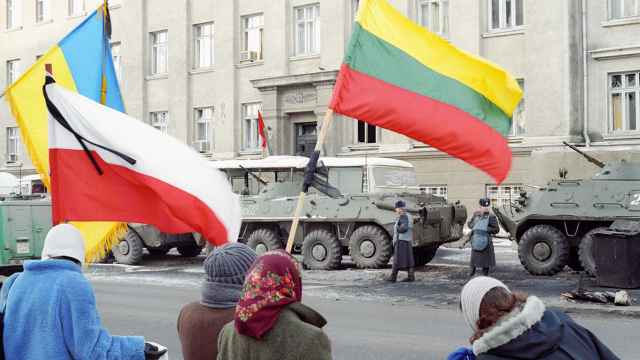Lithuania has banned the exiled Russian rapper Morgenshtern from entering the country for 10 years, local media reported on Thursday.
Migration authorities in Lithuania told the Baltic News Service news agency that the decision followed a written recommendation from the Lithuanian Foreign Ministry, which claimed that Morgenshtern could pose a threat to national security.
“The entry ban on A. Morgenshtern takes effect immediately and will remain in force for 10 years,” BNS quoted a spokesperson from the Lithuanian Interior Ministry’s migration department as saying. No other details were provided.
Morgenshtern, whose real name is Alisher Valeyev, has not yet publicly commented on the Lithuanian entry ban. A Nov. 29 show in Vilnius is still listed on his official tour website.
Last month, Vilnius Mayor Valdas Benkunskas said he had asked the Lithuanian Foreign Ministry to consider adding Morgenshtern to Lithuania’s list of undesirable persons, citing his past public comments about annexed Crimea and President Vladimir Putin, as well as Ukraine’s decision to ban him.
Ukraine blacklisted the rapper in 2021, just before Russia’s full-scale invasion, over what authorities in Kyiv described as his promotion of violence and drug use in music.
Morgenshtern, one of Russia’s most polarizing rappers, is under criminal investigation in his home country for failing to comply with Russia’s “foreign agent” reporting requirements. Russian authorities seized his property and placed him on a wanted list.
Morgenshtern, who has drawn the ire of conservative groups for explicit lyrics and a provocative personal style, left Russia in November 2021 after federal investigators accused him of drug trafficking.
Russia’s Justice Ministry labeled Morgenshtern a “foreign agent” in May 2022, three months after the invasion of Ukraine.
A Message from The Moscow Times:
Dear readers,
We are facing unprecedented challenges. Russia's Prosecutor General's Office has designated The Moscow Times as an "undesirable" organization, criminalizing our work and putting our staff at risk of prosecution. This follows our earlier unjust labeling as a "foreign agent."
These actions are direct attempts to silence independent journalism in Russia. The authorities claim our work "discredits the decisions of the Russian leadership." We see things differently: we strive to provide accurate, unbiased reporting on Russia.
We, the journalists of The Moscow Times, refuse to be silenced. But to continue our work, we need your help.
Your support, no matter how small, makes a world of difference. If you can, please support us monthly starting from just $2. It's quick to set up, and every contribution makes a significant impact.
By supporting The Moscow Times, you're defending open, independent journalism in the face of repression. Thank you for standing with us.
Remind me later.






